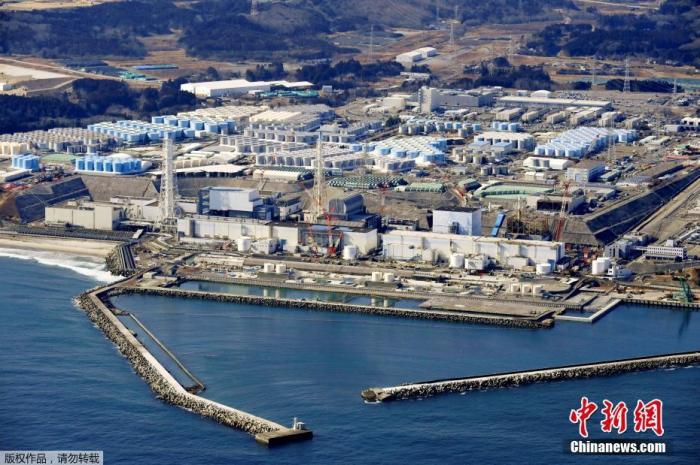In April 2021, the Japanese government decided to discharge the nuclear-contaminated water from the Tokyo Electric Power Company's Fukushima Daiichi nuclear power plant into the sea.
The decision sparked a backlash in Japan and abroad.
Recently, an investigation team from the International Atomic Energy Agency arrived in Japan again to start a review of nuclear-contaminated water discharged into the sea.
Data map: Japan's Fukushima Daiichi nuclear power plant.
Kenichi Oshima, a professor at the Department of Policy Studies at Ryukoku University in Japan, has been tracking the issue of Fukushima nuclear pollution for a long time.
For the plan proposed by the Japanese government and Tokyo Electric Power Company to discharge into the sea, he expressed his clear opposition.
Kenichi Oshima, a professor at the Department of Policy, Ryukoku University, Japan:
I am totally opposed to it. Tokyo Electric Power Company explained that the discharge into the sea is due to the need for the waste furnace, but the waste furnace is not easy to achieve, and it takes 30 years.
The (discharge of sewage into the sea) plan itself is very unscientific and needs to be seriously discussed again.
The Japanese government is obliged to let the public know the real situation of the Fukushima Daiichi nuclear power plant, but instead of doing so, they cover up the facts.
According to Japanese media reports, in order to prove the so-called safety of sewage discharge into the sea, the Tokyo Electric Power Company decided to test the breeding of flounder and abalone in nuclear-contaminated water around September this year.
In this regard, Kenichi Oshima believes that this approach is very different from the fishermen's demand for the Japanese government to prove that the safety of the marine environment can be ensured after the sewage is discharged into the sea.
Kenichi Oshima, Professor of the Department of Policy, Ryugu University, Japan:
This is equivalent to an experiment in a water tank, and it is impossible to reproduce the food chain ecosystem of the real marine environment, including the role of microbial reproduction. This kind of experiment is completely absurd.
No one knows what radioactive substances are in nuclear sewage and what effects it has on what kind of creatures, not even the fishermen.
No matter what decision is made, it is an indisputable fact that the Fukushima nuclear power plant accident caused serious nuclear radiation pollution, and the international community has every right to demand careful handling.

